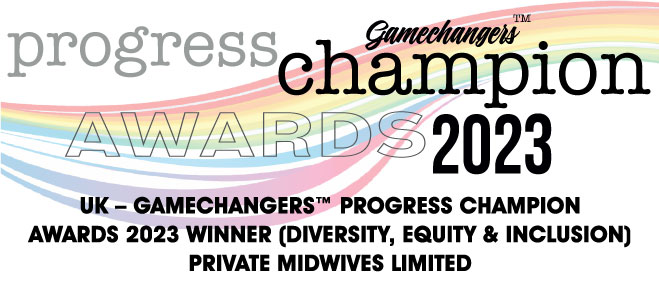
In this blog we will be looking specifically at postnatal depression. How it affects people, how to support someone with post-natal depression, how to get help, and what help there is available.
Postnatal Depression
Depression in any form is a mental health condition.
It is important to know that postnatal depression is not a sign of weakness, however it does need to be addressed and should not be viewed as something that will just go away on its own. Those first weeks after a baby has been born can be a daunting time for new parents and postnatal depression can be very scary to deal with.
The good news is that postnatal depression can be treated with the right care and support, and most women will make a full recovery.
It’s important to ask for help if you think you are depressed and to know that there is help out there.
How does Postnatal Depression Affect You?
Postnatal depression is a depression that starts within the first 12 months after giving birth. In the UK it is estimated that 1 in 10 women suffer from postnatal depression at some point during the first 12 months of their baby’s life.
What are the Symptoms of Postnatal Depression?
The symptoms of postnatal depression include low mood, lack of pleasure and interest in doing things, withdrawal from social activities, difficulties falling asleep or sleeping too much, lack of energy, problems concentrating, and frightening thoughts such as of hurting yourself or your baby. Experiencing these symptoms can spoil the experience of new parenthood. It can strain relationships between mother and baby and partner. Someone with postnatal depression may not look after themselves, or their baby as well as they would when they are mentally well. It can also lead to withdrawal from everyone, including the newborn baby and some sufferers feel that, because of postnatal depression, they have not bonded with their baby.
It’s important to note here that bonding between the mother and child does not always occur within the first few days or weeks of birth. This experience is different for all parents and can sometimes take time. However, postnatal depression can negatively impact this process, therefore affecting the child’s development and behaviour even after the depression has ended. This bonding process can be helped greatly for someone who is suffering postnatal depression with good support from family, friends, and local resources.
How does Postnatal Depression Impact Breastfeeding?
It is important for parents to remember that suffering from postnatal depression does not make them a bad mother/parent and does not mean that they do not love their new baby. Coping with postnatal depression symptoms and caring for a new baby can be very hard. Some women may also struggle with breastfeeding during postnatal depression because successful breastfeeding in the early days depends on things such as being close to your baby and nursing often. A woman who is too low in mood or too tired to spend time with her baby might find it difficult to keep breastfeeding going. This is, of course, not the case for all mothers suffering with postnatal depression.
How to Support Someone with Postnatal Depression
There are many ways that family and friends can support their loved one who is suffering with postnatal depression.
Supporting your loved one
- Familiarise yourself with the signs and symptoms of postnatal depression.
- Encourage them to reach out to their GP, Community Mental Health Team (CMHT) or counsellor.
- Offer to go with them to their appointments.
- Listen with empathy, facilitate them to express their true feelings and NEVER criticise them.
- Make sure they are eating and drinking and generally looking after themselves.
- Enable them to rest by offering to take the baby wherever possible.
- Encourage exercise by offering to go out for a walk or a class together.
- Plan activities together as a couple.
- Ask family and friends to support you both by making meals or doing some washing and cleaning.
- Keep the number of visitors to a bare minimum, especially if they are feeling overwhelmed.
- Keep reassuring them that they are doing a great job and that they are a good mother.
- Seek out any local mother and baby groups and encourage her to join.
How to Reduce the Risk of Postnatal Depression
The risk of postnatal depression can be reduced by being proactive before the birth and making the following preparations:
- Avoiding getting over tired, relaxing as much as possible
- Eating well
- Avoiding major stress in pregnancy
- Going to antenatal classes with a partner and seeing their GP or health visitor regularly
- Having counselling and examining their own birth and early childhood and exploring family history of depression
- Having good emotional support from partner, family, and friends
How to get help for postnatal depression
The most important first step in managing postnatal depression is recognising the problem and taking action to deal with it. The support and understanding shown by partners, family and friends is paramount to a person’s recovery.
What resources are out there to help a person manage their Postnatal Depression?
Just as symptoms of postnatal depression vary from person to person, so does the treatment.
- Guided self-help is based on the principle that a GP can help you to help yourself by providing self‑help manuals. They will provide practical advice on how to deal with the types of issues the person is facing.
- Talk therapy encourages the person to talk through problems, either one-to-one with a counsellor or with a group. Two widely used talking therapies used in the treatment of postnatal depression are Cognitive Behavioural Therapy (CBT) and Interpersonal Therapy (IPT).
- The use of antidepressants may be recommended if there are signs of moderate postnatal depression with a previous history of depression, severe postnatal depression, or if you have not responded to counselling or CBT.
What Local Resources are Available to Support Postnatal Depression?
Psychological therapies such as CBT and IPT as mentioned above are usually recommended as the first line of treatment for mild to moderate postnatal depression in women with no previous history of mental health illness.
Local resources for help with postnatal depression include:
- Your GP, who can give medication and complete a referral to a health visitor or The Community Mental Health Team (CMHT)
- A Health Visitor can visit the home on a regular basis and refer to support groups locally.
- Your Midwife should be made aware of any previous history of postnatal depression.
- CMHT can refer to a psychiatrist or Community Psychiatric Nurse (CPN)
- Counsellors can be very helpful because they can be impartial and objective about how the person is feeling. It may also be helpful to speak to someone who has experience with postnatal depression.
If you would like to discuss how we can help with postnatal services or make a booking please contact us on 0800 380 0579 or visit our costs page to find out more
 LANGUAGE
LANGUAGE



You must be logged in to post a comment.